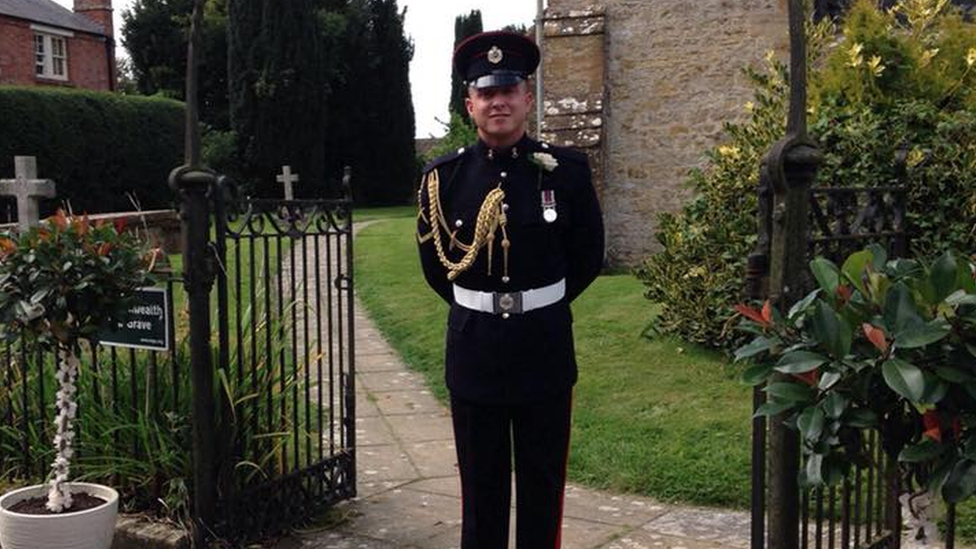Significant failings in L/Cpl George Partridge diving death
- Published
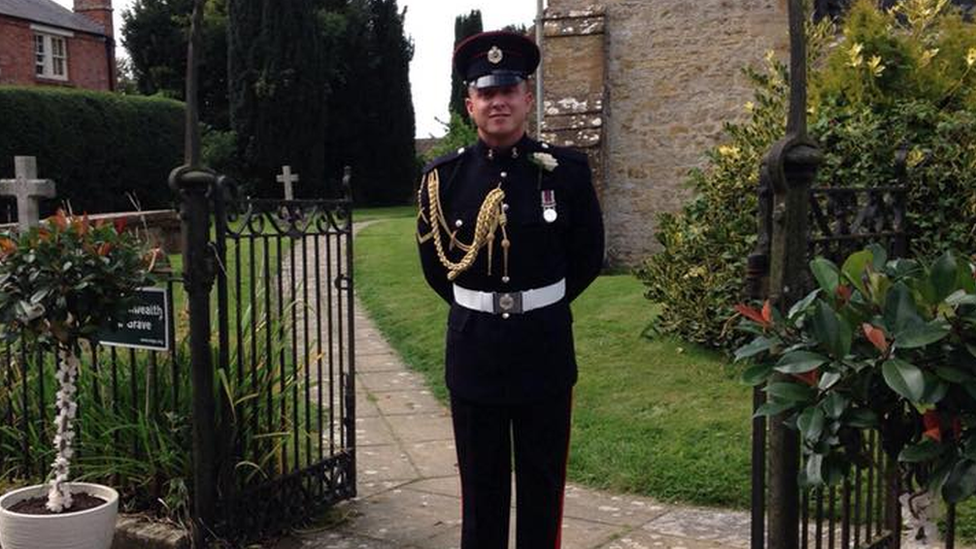
L/Cpl George Partridge was described as an "exemplary soldier" by his commanding officer
"Significant points of failure" during a military dive training course in which a soldier died four years ago have been found at an inquest.
L/Cpl George Partridge, 27, of Yeovil, Somerset, was taking part in the five week course at the National Diving Centre in Tidenham, Gloucestershire.
But when he was brought to the surface, his face mask was hanging off and his two air tanks were found to be empty.
A Gloucester inquest jury said the "sudden death" was due to lack of air.
Delivering a narrative verdict, it said: "There have been significant points of failure with regards to process and training, both within the AD2 (advanced diving) course and supervisor training which led to George Alastair Charles Partridge's death."
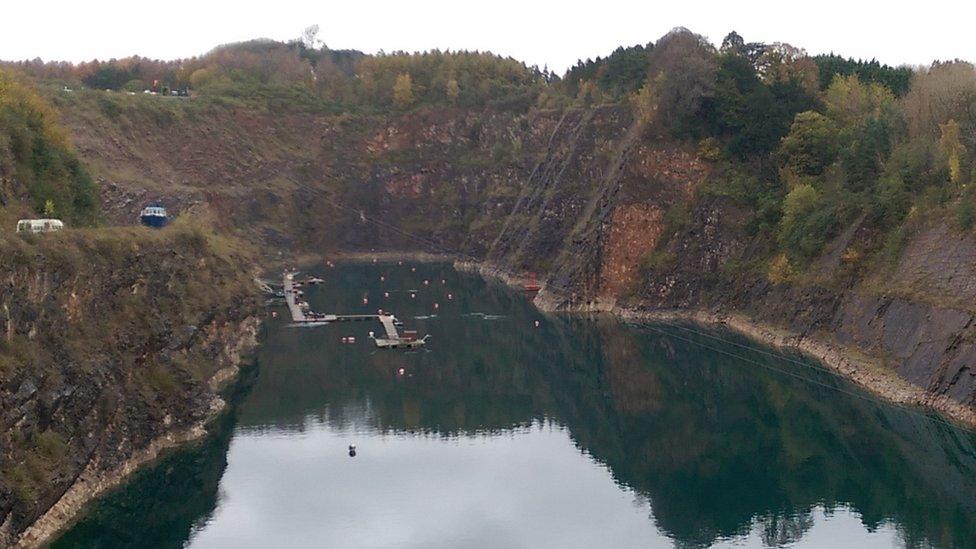
The National Diving and Activity Centre is a large flooded quarry at Tidenham, Gloucestershire
On the day of his death in March 2018, trainees had been scheduled to perform "Dive 19" in their course, going down to a depth of 21-23 metres (68-75ft), the inquest was told.
However, a decision was taken on the day to skip that exercise and go straight on to "Dive 20" of the programme instead, descending to a submerged helicopter at a depth of 26-27 metres (85-89ft).
The dive was due to be 10 minutes long but exceeded this, leading to L/Cpl Partridge's main and "bail out" air tanks running out.
The change of dive programme was a failing highlighted by the inquest jury.
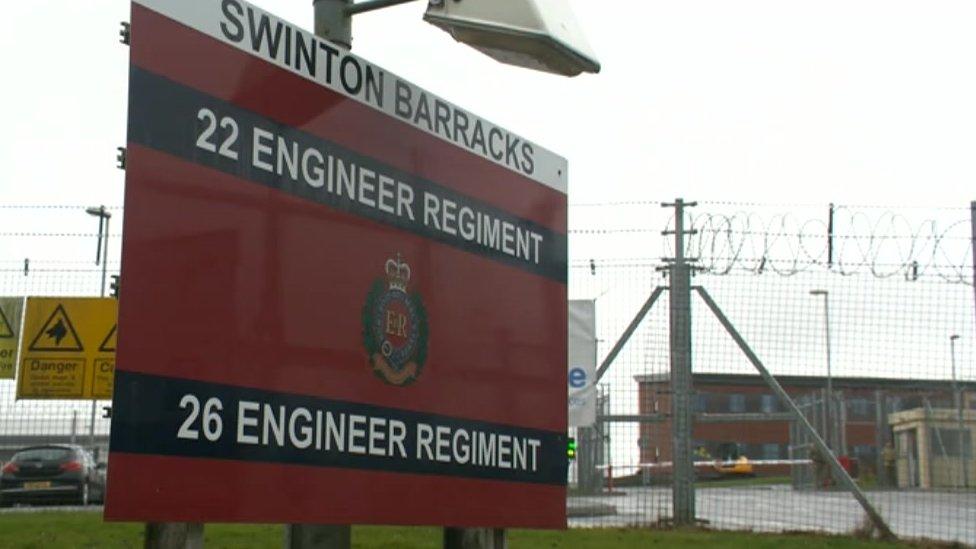
Lt Cpl George Partridge was stationed at the Wiltshire-based 26 Engineer Regiment
A post-mortem examination revealed that L/Cpl Partridge, who was stationed at the Wiltshire-based 26 Engineer Regiment, had a minor and previously undiagnosed anomaly in his right coronary artery.
There was evidence that he had suffered five separate medical "episodes" during different endurance events at work but these had not been linked or signposted by management.
A Royal Navy investigation in 2020 concluded that had "a clear audit trail of past issues with endurance events been visible, follow-on action may have been taken".
Other factors highlighted by the jury were around a lack of reliable two-way voice communications and that the dive supervisor had not been taught how to carry out air endurance calculations.
That meant he did not know how much faster a diver's tanks would run out during deep dives.
An adequate risk assessment was not carried out and a distance line was three times longer than it should have been at 53m (173ft) - meaning there was a risk of it tangling.

Follow BBC West on Facebook, external, Twitter, external and Instagram, external. Send your story ideas to: bristol@bbc.co.uk , external
- Published11 September 2020
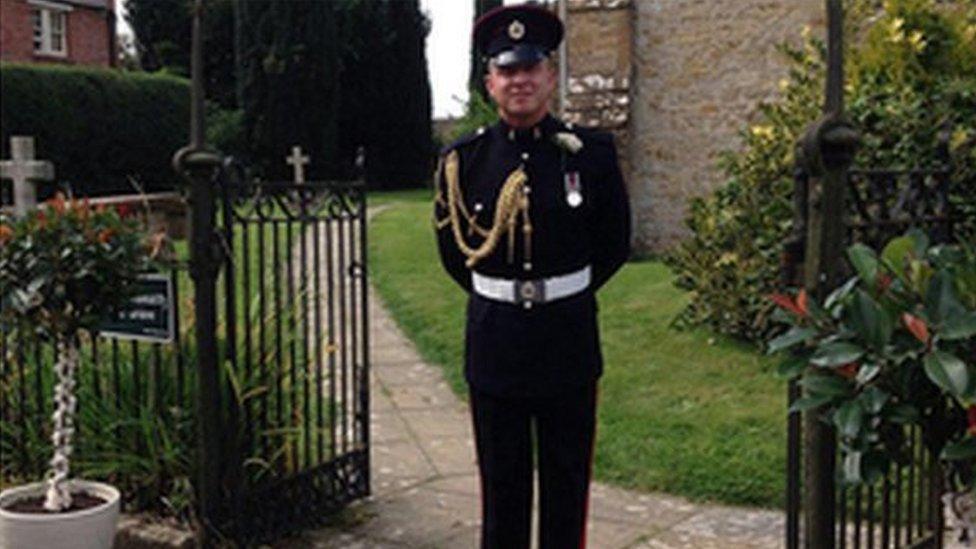
- Published7 September 2018

- Published2 April 2018
